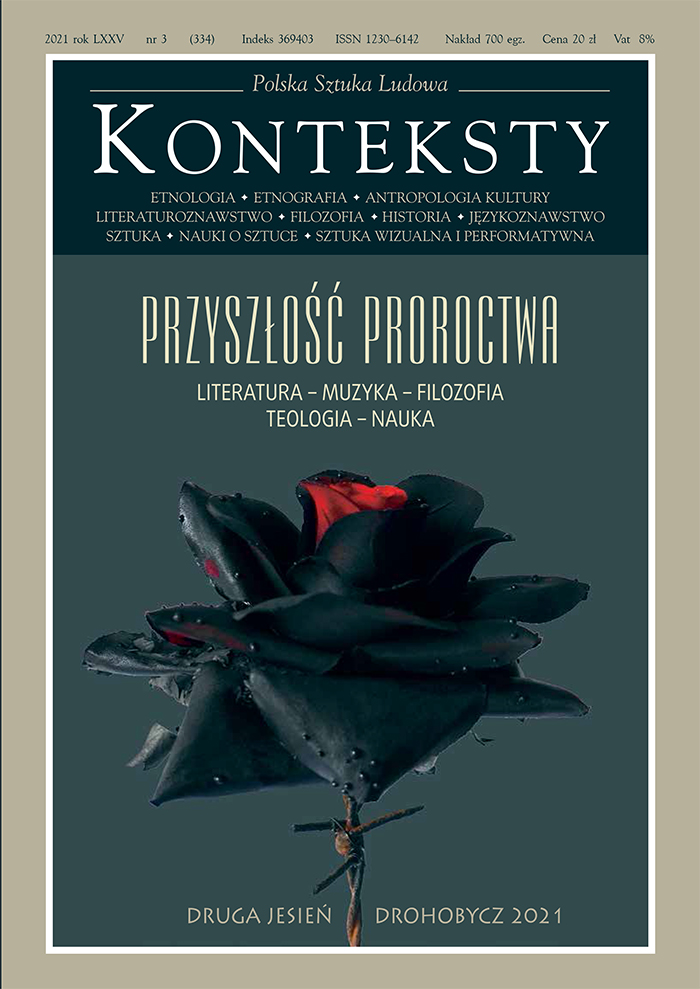Roza Weneda: nie mówcie nic jutrzejszym trupom
Roza Weneda: Say Nothing to Tomorrow’s Corpses
Author(s): Dorota SiwickaSubject(s): Language and Literature Studies, Theology and Religion
Published by: Instytut Sztuki Polskiej Akademii Nauk
Keywords: Lilla Weneda;Juliusz Słowacki;
Summary/Abstract: The author of the article regards the sentence: “Say nothing to tomorrow’s corpses” – uttered by Roza – to be the problem centre of Lilla Weneda by Juliusz Słowacki, the greatest Polish drama about extinction. The plot takes place on the eve of an ultimate defeat (the Lechite invasion) intent on destroying the ancient, mythical tribe of the Weneds. Roza is a seeress (sorceress) aware of the inevitably encroaching catastrophe, but does not want her people to learn the terrible truth. The uniqueness of the character created by the poet (combining features of Biblical prophets and völv – seeresses from Icelandic sagas) and the unusual nature of her conduct (a refusal to reveal the prophecy) provoke the posing of universal questions transcending the nineteenth-century context of Słowacki’s work.D. Siwicka thus enquires about the effectiveness of the impact of apocalyptic prophecies (a medium brimming with expert warnings and the fantasies of pop-culture authors) upon the change of human stands at the time of global threats. In doing so, she asks whether the transformation of contemporary man can take place under the impact of fear caused by images of the end. Finally, she enquires about the harp proposed by Słowacki – a symbolic instrument whose sound was to grant valour and lead to victory.
Journal: Konteksty
- Issue Year: 334/2021
- Issue No: 3
- Page Range: 109-112
- Page Count: 4
- Language: Polish
- Content File-PDF

